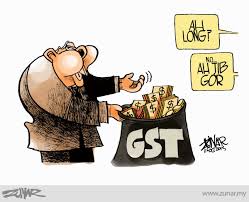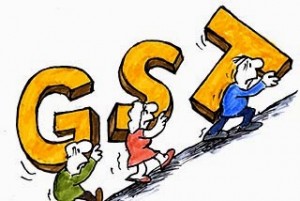“OUR LIVES BEGIN TO END THE DAY WE BECOME SILENT ABOUT THE THINGS THAT MATTER” – Martin Luther King Jr.
Are the organisation’s staff , employees and volunteers aware what to do if they have worries about anything
conspicuous happening or going on on in the group or at some higher level and that they will be supported if they came forward?
It is important that people in the organisation have the confidence to come forward to speak or act if they are unhappy with anything related to management or any transaction or activity going on in an organisation but in this reporting process they generally loose their way and couldn’t be heard rather faces retaliation.Hence it is necessary to have an effective policy in place to prevent such members who blew the whistle on the company for disclosure of any illegal or illegitimate practice going on in an organisation from retaliation or discrimination against them.
Such an effective policy preventing the persons exposing the misconduct is referred to as whistle blower policy.
In legal terms we can say, whistle blowing is a term used to describe the disclosure of information that one reasonably believes to be evidence of contravention of any law or regulation or information that involves mismanagement, corruption or abuse of authority within an organisation. Therefore a whistle blower is a person who exposes misconduct, alleged dishonest or illegal activity occurring in an organisation. It can be either internal whistle blowing or external.
Considering the fact that many corporate frauds come to light through tip off or confession of an insider, whistle blowing is viewed as one of the most effective way to prevent corporate fraud from blowing up. A recent case was of an IAS officer Ashok Khemka who blew the whistle against DLF, the private sector real estate in August 2013. He was unceremoniously transferred out as powerful politicians were involved in the exposition. An effective whistle blower policy is required to be in place defining the individuals covered with non retaliation provision to the ones exposing the truth and with a disclaimer that anyone that anyone filling a claim must have a reasonable belief that an issue exists and he is acting in good faith, proper confidentiality and process should be maintained and it should be communicated to the employees, vendors, customers, etc. Some of the unethical practices include fraud, theft , dishonesty, discrimination, lack of independence, corruption and bribery,insider trading, financial statements misrepresentation etc.
Hence it is necessary for companies under the new Companies Act 2013 to establish a vigil mechanism for human resource of an organisation to report unethical concerns and provide for adequate safeguard against victimization of one blowing the whistle and encourage one to to blow the whistle for any misconduct and encourage transparency and ethics in business.





19 Comments. Leave new
nice article
Whistle blowers are like firefighters, entering a house on fire due to moral obligation and duty but at their own risk!
Yes, you are right Divya.
well explained
The work whistleblowers do is very brave and courageous. But after that governments do not provide them with enough protection to safeguard them from future harm, rather some governments try to outcast them.
yes absolutely true Akul. This happen in most of the cases.
Unique choice of article. Very well explained.
Thank you Meghna!
Amazing choice of topic !
Very precise information..good job!
nice one …wonderful post .liked it
good article.Mr Ashok Khemka is our alumni (IIT Kharagpur)
Thank you all.
Good work Juhi 😀 You’re right..whistle blowers need to be given adequate amount of protection so that such scams and frauds do not just keep cooking in the organizations for ages. If they’re given protection and people are encouraged to disclose genuine frauds or activities going wrong, only then can such scams be cracked at an earlier stage!
Yes what you said is absolutely correct. Thanks!
Good work.. Whistle blowers have to be courageous!
whistle blowers are important for the firms.
Whistle blowing a sensitive topic to comment upon atleast for me. But you have presented it really well!!
Well written and good topic 🙂